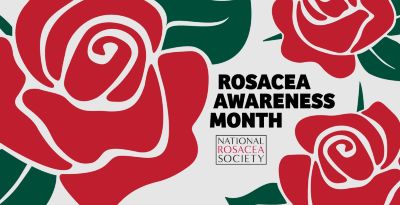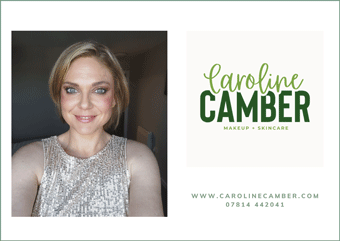April is recognized as Rosacea Awareness Month, dedicated to raising awareness about this skin condition and providing support to those affected by it.
Rosacea is a common skin condition that primarily affects the face. It causes redness, visible blood vessels, bumps, and sometimes eye irritation.
Environmental Triggers
While the exact cause of rosacea is unknown, factors such as genetics, environmental triggers, and abnormalities in the blood vessels of the face are believed to play a role. Although it can affect anyone, it is more common in fair-skinned individuals between the ages of 30 and 50. It tends to affect women more than men.
Rosacea may initially resemble a simple sunburn or an inexplicable blush. Suddenly, without warning, a flush comes to the cheeks, nose, chin or forehead. Then, the redness disappears. Unfortunately, it happens again and again, becoming ruddier and lasting longer each time, and eventually, visible blood vessels may appear.
Without treatment, bumps and pimples often develop, growing more extensively over time, and burning, itching, and stinging are common.
A Significant Impact
Rosacea can have a significant impact on a person’s quality of life, both physically and emotionally. The visible symptoms can lead to embarrassment, low self-esteem, and even depression in some cases. It is essential for those with rosacea to seek medical advice and treatment to help manage their symptoms and improve their overall well-being.

Treatment options may include topical or oral medications, laser therapy, or lifestyle changes to identify and avoid triggers that worsen rosacea symptoms. April is recognized as Rosacea Awareness Month, dedicated to raising awareness about this skin condition and providing support to those affected by it.
During this month, various organisations and individuals work together to educate the public about rosacea, its symptoms, triggers, and available treatments.
Increased Awareness
Through increased awareness, individuals with rosacea can feel more empowered to seek help and manage their condition effectively. It also encourages others to be understanding and supportive of those living with it. Promoting a more inclusive and compassionate society.
From a makeup perspective, I have quite a bit of experience helping those with quite severe rosacea reduce the appearance of redness through colour correction and product recommendations. If you would like support with this, please don’t hesitate to get in touch, and I’ll be happy to help.
For more beauty related articles, click here.



